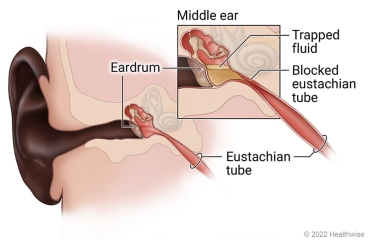Methods and Nutrients That Help Maintain Cognitive Support

Maintaining strong cognitive health is essential for staying focused, productive, and mentally resilient throughout life. As daily demands grow and mental fatigue becomes more common, many individuals are turning to structured strategies and targeted nutrients to support brain function. Understanding the factors that influence cognitive performance can help individuals make informed choices that strengthen memory, mental clarity, and long-term brain health.
Resources that highlight approaches to Cognitive Support often emphasize a combination of lifestyle habits and key nutrients. When used together, these methods help maintain optimal mental performance and support a balanced and alert state of mind.
Why Cognitive Support Matters
Cognitive support refers to practices that maintain or enhance mental abilities such as memory, focus, problem-solving, and overall mental agility. With increasing exposure to stress, prolonged screen time, and busy schedules, cognitive fatigue has become a common experience. Supporting brain function through intentional habits and nutrients can help increase productivity, reduce mental burnout, and promote sharper thinking.
Cognitive support is also crucial for long-term brain wellness. It plays an important role in healthy aging, emotional balance, and the ability to adapt to new challenges.
Lifestyle Methods That Support Cognitive Function
A balanced lifestyle has a significant impact on cognitive health. The following methods help maintain mental performance and reduce cognitive decline over time.
Consistent Physical Activity
Exercise promotes better circulation, increases oxygen flow to the brain, and supports the growth of new neural connections. Regular movement, whether through walking, strength training, or structured exercise programs, has been shown to improve focus, memory, and overall brain function.
Quality Sleep
Sleep is one of the most important factors for cognitive clarity. A consistent sleep schedule supports memory consolidation, mental recovery, and clear thinking. Poor sleep can lead to difficulty concentrating, reduced problem-solving ability, and increased stress.
Mental Engagement
Challenging the brain with learning activities, puzzles, reading, or creative hobbies helps keep neural pathways strong. Lifelong learning contributes to better mental resilience and cognitive longevity.
Stress Reduction Techniques
Chronic stress can impair cognitive performance and contribute to mental fatigue. Practices such as meditation, deep breathing, journaling, or spending time in nature help support emotional balance and mental clarity.
Hydration and Balanced Nutrition
The brain relies on proper hydration and a steady supply of nutrients to function optimally. Staying hydrated and eating balanced meals throughout the day reduce mental sluggishness and improve overall cognitive endurance.
Nutrients Essential for Cognitive Support
Specific nutrients play a vital role in supporting brain health. Including these nutrients in a balanced diet or supplement routine can contribute to improved mental performance.
Omega-3 Fatty Acids
Omega-3s, particularly DHA, support brain structure and function. They play a key role in memory, concentration, and communication between brain cells.
B Vitamins
B vitamins, especially B6, B9, and B12, support energy production and help regulate cognitive processes. They are essential for maintaining mental clarity and reducing fatigue.
Antioxidants
Antioxidants such as vitamin C, vitamin E, and polyphenols protect the brain from oxidative stress, which can damage cells and impair cognitive function. These nutrients support long-term brain health and may help slow cognitive decline.
Amino Acids
Amino acids like L-tyrosine and L-theanine are known for their impact on focus, stress response, and mental relaxation. They support neurotransmitter activity and help maintain a balanced mood during demanding tasks.
Choline
Choline is important for memory and learning. It supports the production of acetylcholine, a neurotransmitter essential for cognitive processing and neural communication.
Minerals
Magnesium, zinc, and iron contribute to cognitive energy, concentration, and mental stamina. Balanced levels of these minerals support healthy brain function and prevent cognitive sluggishness.
Combining Methods and Nutrients for Effective Cognitive Support
The most effective cognitive support strategies involve combining lifestyle habits with nutrient-focused approaches. This ensures both immediate mental clarity and long-term brain health.
Creating a Cognitive-Friendly Routine
Developing consistent habits like regular exercise, structured meal times, and scheduled mental breaks helps stabilize cognitive performance throughout the day.
Prioritizing Whole Foods
A diet rich in vegetables, fruits, whole grains, lean proteins, and healthy fats naturally provides many of the nutrients required for cognitive function.
Using Targeted Supplements When Necessary
For individuals seeking additional support, targeted supplementation can help fill nutritional gaps and enhance focus, memory, and mental energy.
Practicing Mindfulness
Incorporating daily practices that reduce stress and improve emotional regulation contributes significantly to cognitive health.
Final Thoughts
Maintaining strong cognitive function requires a thoughtful combination of lifestyle habits and brain-supporting nutrients. By adopting healthy routines, staying mentally active, and incorporating essential nutrients into one’s daily regimen, individuals can support mental clarity, sharper focus, and long-term brain wellness. As modern life demands greater mental resilience, understanding and applying these methods becomes an essential part of sustaining overall well-being.




